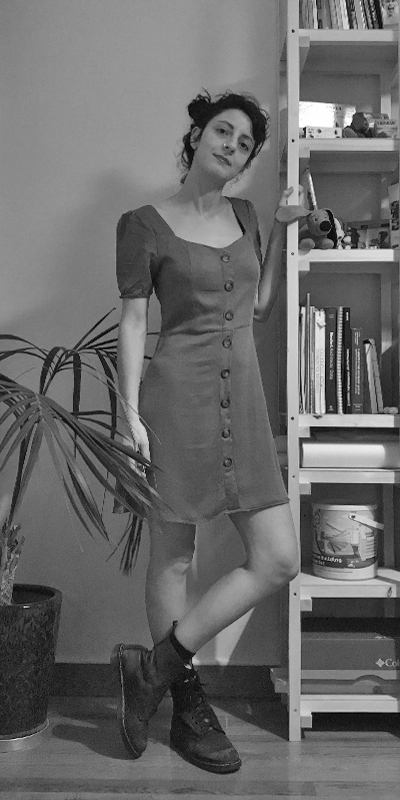
Alexandra Papadaki graduated from the department of Architecture and Engineering at Democritus University of Thrace in Xanthi, Greece (BSc./MSc. 2011) and continued her studies in Design for Sustainable Development at Chalmers University in Gothenburg, Sweden (MSc. 2014).
Alexandra is part of FBW Architects + Urbanists since 2016.
She has worked as a consultant in Zanzibar Town department of Urban and Rural Planning (DoURP - Tanzania 2014 - 2019) and is an executive associate of African Architecture Matters (AAM - Netherlands 2014 -), a no-profit organization for research and action on the built environment of the African continent.
During her professional years, she has collaborated with UNESCO, the World Bank Group and other international organizations in urban planning and sustainable urban development with community engagement programs.
Through her work and personal activities, she is actively involved in the promotion of heritage-based development and social inclusion in the fields of architecture and urban planning.
Role
Project Architect, Site supervisor
Career starting point
The old and traditional stone buildings and settlement were my inspiration to study architecture and engineering and the contemporary challenges made me decide to do my masters in Design for Sustainable development.
Influenced by
Aris Konstantinidis, a greek modernist architect/writer from the 30s till 90s and Jane Jacobs, an American journalist/activist from the 60s-70s
Why architecture?
Because architecture can be a great tool for activism and education leading to social and environmental change.
Design principles
Working with: respect of heritage, culture and history, recognition of context locality, environmental responsibility and participatory and inclusive methods. Working for: social equity, environmental sustainability, knowledge sharing and promotion of the above design principles.
Formula for success
Context sensitive, adaptive, critical and inquisitive, collaborative, accumulating expertise (listening), practice oriented and always (pro)active.
Obstacles for the profession
Sometimes it’s hard to get the opportunity to prove how sustainable design practices and planning methodologies are better alternatives and eventually a better investment.
